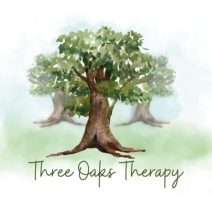The Polyvagal Theory, developed by Dr. Stephen Porges, offers a comprehensive framework for understanding how our nervous system responds to stress and danger. This theory highlights three primary states of the nervous system:
The Ventral Vagal State: Your Body's Connection Centre
The ventral vagal state is often described as the body's "social engagement system." It's a place of connection, safety, and relaxation. When we're in this state, we feel grounded, present, and able to connect deeply with ourselves and others. In this state, we're open to new experiences, able to form deep bonds, and capable of responding to life's challenges with resilience.
Signs of a Ventral Vagal State:
- Feeling calm and relaxed
- A sense of safety and security
- Openness and curiosity
- Ability to connect emotionally with others
- Grounded and present in the moment
While it's ideal to reside in this state, life's inevitable ups and downs can disrupt our equilibrium. However, understanding the ventral vagal state is the first step towards cultivating a more balanced and connected life.
The Sympathetic State: Your Body's Alarm System
In contrast to the calm and connected ventral vagal state, the sympathetic nervous system is your body's built-in alarm system. It's designed to protect you from perceived threats by triggering the "fight or flight" response.
Imagine a person startled by a loud noise. Their heart races, their senses heighten, and their muscles tense. This is the sympathetic nervous system in action. While essential for survival, chronic activation can lead to stress, anxiety, and burnout.
Signs of a Sympathetic State:
- Increased heart rate and blood pressure
- Rapid, shallow breathing
- Muscle tension and trembling
- Sweaty palms
- Difficulty concentrating
- Feeling irritable or on edge
Understanding the sympathetic state is crucial for managing stress. While it's a normal bodily response, chronic activation can negatively impact your overall well-being.
The Dorsal Vagal State: Dissociation or Withdrawal
Unlike the fight or flight response of the sympathetic state, the dorsal vagal state represents a different kind of survival mechanism: dissociation or withdrawal. It's the body's response to overwhelming stress or danger.
When faced with extreme stress, your body may enter a state of shock, leaving you feeling numb and unable to respond
Signs of a Dorsal Vagal State:
- Feeling numb or disconnected
- Difficulty concentrating or making decisions
- Slowed-down bodily functions (heart rate, digestion)
- Feeling overwhelmed or hopeless
- Withdrawal from social interactions
It's important to remember that the dorsal vagal state is a natural response to overwhelming stress. It's a survival mechanism. However, chronic activation can contribute to challenges such as depression, anxiety, and fatigue.
Balancing the three states of the nervous system is crucial for overall well-being. By understanding the dorsal vagal state, you can begin to recognize when your body is shutting down and take steps to restore balance.
Balancing Your Nervous System: Finding Equilibrium
Understanding the three states of the nervous system - ventral vagal, sympathetic, and dorsal vagal - is a crucial first step towards building resilience and well-being. But how do we balance these states to cultivate a sense of calm and centeredness?
The goal isn't to eliminate the sympathetic or dorsal vagal states altogether. These responses are essential for survival. Instead, the focus is on developing the ability to move fluidly between these states and to spend more time in the ventral vagal state.
Key strategies for balancing your nervous system include:
- Mindfulness and grounding techniques: Practices like meditation, deep breathing, and yoga can help anchor you in the present moment, promoting a ventral vagal state.
- Physical activity: Regular exercise helps regulate the nervous system and reduces stress.
- Nature: Relaxing in nature, such as walking in the countryside or a wooded area, can promote calmness.
- Healthy sleep: Sufficient sleep is essential for nervous system regulation.
- Nutrition and hydration: A balanced diet and adequate hydration support overall well-being.
- Social connection: Building strong relationships fosters a sense of safety and belonging.
- Setting boundaries: Protecting your energy and time can prevent overwhelm.
Remember, progress, not perfection, is the goal. It's okay to experience fluctuations in your nervous system state. The key is to develop tools and strategies to support your overall balance and resilience.
By understanding your body's responses and implementing these strategies, you can cultivate a greater sense of calm, focus, and connection in your life.
Remember, your journey to optimal well-being is unique. Explore different approaches and find what works best for you.
Feeling overwhelmed by stress or struggling to find balance? I can help you develop personalized strategies to manage your nervous system and create a more fulfilling life.
Schedule a consultation today to learn more: https://threeoakstherapy.co.uk/#contact
